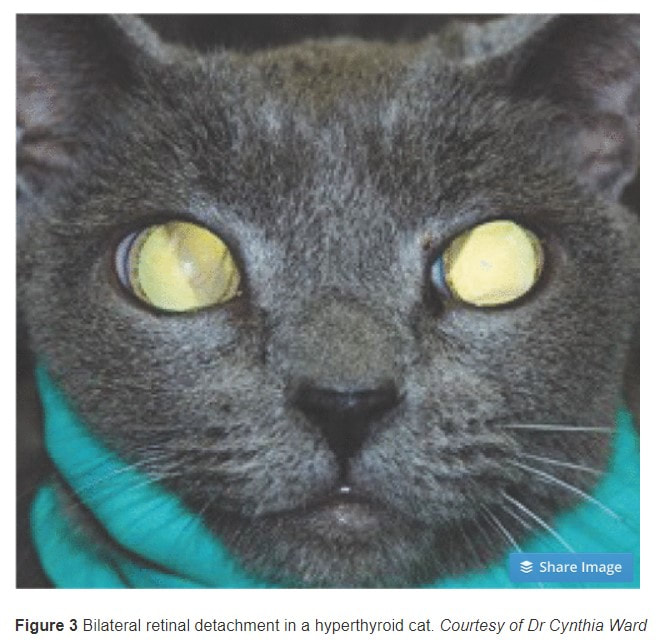Feline Hyperthyroidism
Did You Know?
Untreated Hyperthyroidism Effects
DiagnosisGenerally, simple blood tests are all that is needed. Some cats that also have other health problems will require additional tests before treatment can be started. Annual screening can detect this disease before serious problems occur.
TreatmentThere are four basic treatments: daily medication, special food, radioiodine, and surgery. Your veterinarian will discuss the best option for your cat.
Advantages and Disadvantages of Each Treatment. |
Did you know?
Dr. Dennis co-authored the most current Guidelines for Feline Hyperthyroidism.
|



